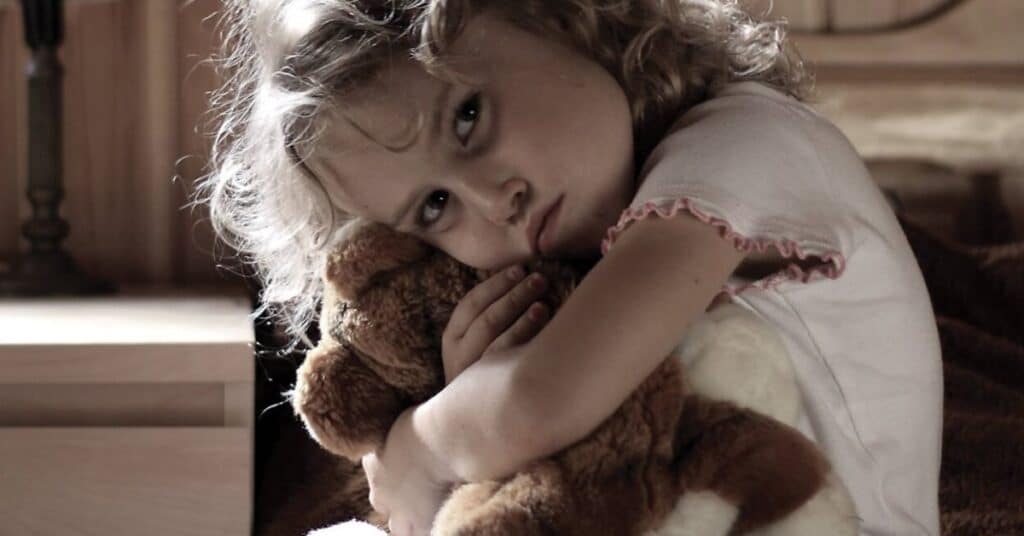Childhood trauma can have a profound impact on a person’s life, shaping their beliefs, emotions, and overall well-being. The scars left by these experiences can be deep and long-lasting, affecting relationships, self-esteem, and mental health.
However, amidst the darkness, there is hope. Positive affirmations have emerged as a powerful tool for childhood trauma healing, offering solace and empowerment to those seeking to reclaim their lives.
In this article, we delve into the world of positive affirmations and their transformative potential for individuals who have endured childhood trauma. We present 50 powerful affirmations carefully crafted to address various aspects of healing, from self-acceptance and forgiveness to resilience and inner strength.
These affirmations are designed to help survivors of trauma rewire their thought patterns, challenge negative beliefs, and cultivate a deep sense of self-love and healing.
Join us on this journey as we explore the profound impact of positive affirmations on childhood trauma healing. Discover how these simple yet profound statements can serve as a guiding light, illuminating the path towards healing, growth, and liberation.
Understanding Childhood Trauma
What is Childhood Trauma?
Childhood is supposed to be a time of innocence, joy, and carefree exploration. However, for many individuals, childhood trauma casts a long shadow over these formative years. Childhood trauma refers to any distressing experience that occurs during childhood and has the potential to negatively impact a child’s emotional, cognitive, and social development.
Traumatic events can take many forms, including physical, emotional, or sexual abuse, neglect, witnessing domestic violence, experiencing natural disasters, or being involved in accidents. These experiences can overwhelm a child’s ability to cope, leaving them feeling scared, helpless, and alone.
Recognizing the Signs and Symptoms
Childhood trauma can manifest in a variety of ways, and it is important to recognize the signs and symptoms to provide appropriate support. Common indicators of childhood trauma include:
- Emotional and behavioral changes: Children who have experienced trauma may display sudden and extreme mood swings, become withdrawn or excessively clingy, exhibit aggressive behavior, or struggle with self-regulation.
- Cognitive difficulties: Trauma can interfere with a child’s ability to concentrate, learn, and retain information. They may experience difficulties in school, have trouble with memory, and display impaired problem-solving skills.
- Physical complaints: Children may complain of unexplained physical symptoms such as headaches, stomachaches, or general aches and pains. These physical complaints may not have a medical cause but are manifestations of emotional distress.
- Relationship difficulties: Childhood trauma can impact a child’s ability to form and maintain healthy relationships. They may have trust issues, struggle with attachment, or exhibit avoidance behaviors.
The Impact of Childhood Trauma in Adulthood
Childhood trauma can have profound and long-lasting effects on individuals well into adulthood. The experiences and emotions associated with trauma can shape their worldview, self-perception, and overall functioning. Some potential long-term effects of childhood trauma include:
- Mental health issues: Individuals who have experienced childhood trauma are at a higher risk of developing mental health disorders such as depression, anxiety, post-traumatic stress disorder (PTSD), and substance abuse.
- Relationship challenges: Childhood trauma can make it difficult for individuals to form and maintain healthy relationships. They may struggle with intimacy, trust, and communication, leading to a cycle of broken relationships.
- Self-esteem and self-worth: Traumatic experiences can undermine a person’s sense of self-worth and confidence. They may struggle with feelings of shame, guilt, and inadequacy.
- Physical health problems: Research suggests a link between childhood trauma and physical health issues in adulthood, including chronic pain, heart disease, obesity, and autoimmune disorders.
Healing and Seeking Help
Healing from childhood trauma is a challenging journey, but it is possible with the right support and resources. If you have experienced childhood trauma, remember that you are not alone, and seeking help is a sign of strength. Here are some steps you can take towards healing:
- Reach out for support: Talk to a trusted friend, family member, or mental health professional who can provide a safe space for you to share your experiences and emotions.
- Therapy and counseling: Engage in therapy or counseling to work through the trauma and develop healthy coping mechanisms. Trauma-focused therapies, such as cognitive-behavioral therapy (CBT) and eye movement desensitization and reprocessing (EMDR), can be particularly effective.
- Self-care practices: Prioritize self-care activities that promote relaxation, stress reduction, and emotional well-being. This may include exercise, meditation, journaling, or engaging in hobbies that bring you joy.
- Join support groups: Consider joining support groups or connecting with others who have experienced similar traumas. Sharing your story and hearing from others can provide validation, understanding, and a sense of belonging.
Remember, healing takes time, and everyone’s journey is unique. Be patient and compassionate with yourself as you navigate the path towards healing and recovery from childhood trauma. You deserve a future filled with hope, resilience, and happiness.

Harnessing the Power of Positive Affirmations: Healing Childhood Trauma
Healing childhood trauma is a complex and deeply personal journey. It requires a multi-faceted approach that addresses emotional, psychological, and spiritual aspects of the self. One powerful tool that can aid in this healing process is the practice of positive affirmations. In this comprehensive guide, we will explore the concept of positive affirmations, their benefits in relation to childhood trauma, and provide practical tips and examples for incorporating them into your daily life. By cultivating a positive mindset and harnessing the power of affirmations, you can take significant steps towards healing and personal growth.
Understanding Positive Affirmations
Positive affirmations are simple, positive statements that are repeated regularly to reinforce a desired belief or mindset. They are rooted in the principles of cognitive-behavioral therapy and the power of self-talk. By consciously choosing and repeating positive affirmations, you can redirect negative thought patterns, reprogram your subconscious mind, and create a positive and empowering belief system.
Benefits of Positive Affirmations in Healing Childhood Trauma
Shifting Negative Self-Perception: Childhood trauma often leaves deep emotional wounds and negative self-perceptions. Positive affirmations can help you challenge and transform these negative beliefs, such as “I am unworthy” or “I am not enough,” into positive and empowering ones.
Building Self-Compassion and Self-Love: Affirmations nurture self-compassion and self-love, which are crucial for healing. They remind you that you deserve love, care, and respect, helping you develop a healthier and more nurturing relationship with yourself.
Cultivating Resilience: Trauma can leave you feeling helpless and powerless. Positive affirmations can cultivate a sense of inner strength and resilience by reminding you of your inherent ability to overcome challenges and thrive.
Enhancing Emotional Stability: Childhood trauma often triggers intense emotions and emotional instability. Affirmations can help stabilize your emotions by promoting self-awareness, self-regulation, and a greater sense of emotional balance.
Encouraging Mind-Body Connection: Affirmations bridge the gap between mind and body, fostering a deeper connection and promoting holistic healing. By repeating affirmations that emphasize physical well-being, you can encourage a harmonious balance between your mind and body.
Practical Tips for Incorporating Positive Affirmations into Your Daily Life
Choose Affirmations that Resonate: Select affirmations that align with your specific healing needs and resonate with your personal beliefs. They should feel authentic and meaningful to you.
Be Present and Mindful: When repeating affirmations, be fully present and engage with the words. Pay attention to the meaning and emotions behind each affirmation.
Repetition and Consistency: Repeat your affirmations consistently, ideally multiple times throughout the day. Consistency is key to rewiring your subconscious mind and ingraining new positive beliefs.
Visualize and Feel: As you repeat your affirmations, visualize yourself embodying the qualities or beliefs expressed in the statements. Engage your senses and try to evoke corresponding positive emotions.
Affirmations in Writing: Write down your affirmations in a journal or on sticky notes. Seeing the affirmations in your own handwriting reinforces their power and helps anchor them in your mind.
Affirmations in Meditation: Practice affirmations during meditation or quiet reflection. Combine affirmations with deep breathing exercises to create a calm and focused state of mind.
Surround Yourself with Affirmations: Place affirmations in visible locations, such as your bathroom mirror, workspace, or phone wallpaper. Surrounding yourself with positive reminders reinforces their impact throughout the day.
Positive affirmations have the potential to be a transformative tool on your healing journey from childhood trauma. By consciously choosing and repeating positive statements, you can rewire your subconscious mind, challenge negative beliefs, and cultivate a positive mindset.
Remember, healing takes time and patience, but with consistent practice and self-compassion, positive affirmations can be a powerful ally in your journey towards healing, growth, and empowerment.
Embrace the power of affirmations and unlock your full potential for healing and happiness.

Affirmations for Childhood Trauma Healing
1. I am not what happened to me, I am what I choose to become.
This affirmation serves as a reminder that your childhood trauma does not define you. You have the power to shape your own identity and future.
2. I am worthy of love and respect, regardless of my past.
You are deserving of love and respect, no matter what you’ve been through. Your worth is inherent, not determined by your past experiences.
3. I am healing more and more each day.
Healing is a process, and this affirmation acknowledges that you are making progress, no matter how small, each day.
4. My past does not have power over my present or future.
This affirmation helps you reclaim power over your life by asserting that your childhood trauma cannot control your present or future.
5. I am stronger than any struggle I have faced.
You have overcome so much already, which makes you incredibly strong. This affirmation validates your resilience.
6. I am capable of creating a safe and healthy environment for myself.
This affirmation encourages you to take proactive steps to create a peaceful and secure space for yourself.
7. I am a survivor, not a victim.
This affirmation helps shift your perspective from feeling victimized to recognizing your strength and resilience in overcoming your childhood trauma.
8. I am in control of my happiness.
Happiness is a choice, and this affirmation reminds you that you have the power to choose happiness despite your past.
9. I am releasing the past and embracing the present.
This affirmation encourages you to let go of your past and focus on the present moment, where true healing lies.
10. I am proud of the progress I’ve made in my healing journey.
This affirmation validates the effort and progress you’ve made on your healing journey, reminding you to be proud of yourself.
11. I am deserving of peace, happiness, and love.
This affirmation emphasizes your worthiness of positive experiences, feelings, and relationships.
12. I am healing at my own pace, and that’s okay.
This affirmation validates that healing takes time and that it’s okay to heal at your own pace.
13. I am not alone in my healing journey.
This affirmation serves as a reminder that there are others who understand your struggle and are here to support you.
14. I am loving and kind to myself.
This affirmation encourages you to practice self-love and kindness, which are essential for healing.
15. I am courageous for facing my past and healing from it.
This affirmation celebrates your bravery in facing your past and actively working towards healing.
16. I am growing stronger with each passing day.
This affirmation highlights your continual growth and resilience in the face of adversity.
17. I am free from the chains of my past.
This affirmation represents your liberation from the confines of your past, signaling a new chapter in your life.
18. I am committed to my healing journey.
This affirmation emphasizes your dedication to healing, which is a crucial aspect of recovery.
19. I am transitioning from surviving to thriving.
This affirmation signifies a shift in perspective from merely getting by to actively thriving.
20. I am learning to trust and love myself again.
This affirmation acknowledges the process of rebuilding self-trust and self-love, both crucial steps in healing from childhood trauma.
21. I am not defined by my past, but by who I choose to be today.
This affirmation reinforces the idea that your past does not determine your worth or your future. It empowers you to define yourself by the choices you make in the present.
22. My courage is stronger than my fear.
This affirmation helps to remind you of your strength and resilience in the face of adversity and helps to reduce fear-based thinking.
23. I am learning to trust myself and my journey.
This affirmation promotes self-trust, which is essential in the healing process. It encourages faith in your journey and your ability to navigate it.
24. I am worthy of kindness, love, and respect.
This affirmation helps to instill a strong sense of self-worth and encourages you to demand respect and kindness from others and yourself.
25. I am growing stronger and more resilient each day.
This affirmation acknowledges the progress you’re making in your healing journey, reinforcing the idea that every day brings growth and strength.
26. I am allowed to express my feelings without fear of judgment.
This affirmation encourages open and honest expression of emotions, a critical part of healing from trauma.
27. I am not alone in my journey to healing.
This affirmation serves as a reminder that you are not alone, fostering a sense of community and support.
28. I am worthy of a life free from the shadows of the past.
This affirmation states your deservingness of a life unburdened by your past, encouraging you to step into a brighter future.
29. I am letting go of guilt and embracing self-compassion.
This affirmation encourages the release of guilt often associated with trauma and the adoption of a more compassionate attitude towards oneself.
30. I am learning to set healthy boundaries.
This affirmation emphasizes the importance of setting boundaries as a part of self-care and recovery from trauma.
31. I am brave for facing my past and healing from it.
This affirmation validates your courage in facing your past and actively pursuing healing.
32. I am creating a safe space for myself.
This affirmation underlines the importance of creating a safe environment for oneself, which is essential for healing from trauma.
33. I am in control of my healing journey.
This affirmation empowers you by reinforcing that you are in control of your own path to recovery.
34. I am deserving of peace and tranquility.
This affirmation reinforces your worthiness of peace and tranquility, encouraging you to seek these feelings in your life.
35. I am transforming my pain into power.
This affirmation validates your ability to turn your experiences into strength, empowering you in your healing journey.
36. I am learning to love and accept myself unconditionally.
This affirmation promotes self-love and acceptance, which are key components of healing from trauma.
37. I am capable of overcoming my challenges.
This affirmation acknowledges your ability to overcome adversity, reinforcing your strength and resilience.
38. I am not my trauma. I am a survivor.
This affirmation distinguishes between your traumatic experiences and your identity, reinforcing your status as a survivor, not a victim.
39. I am giving myself permission to heal.
This affirmation emphasizes your right to heal, encouraging you to prioritize your recovery.
40. I am becoming the person I aspire to be.
This affirmation acknowledges your progress and growth, validating your journey towards becoming the person you aspire to be.
41. I am not defined by my past, but by who I choose to become.
This affirmation reminds you that your past experiences don’t determine your identity. You have the power to shape your own identity through your actions, decisions, and attitudes today.
42. I possess immense courage and resilience.
This affirmation is to recognize the strength within you. Healing from trauma requires courage and resilience, and you’ve shown these qualities by choosing to heal.
43. I am allowed to feel, process, and express my emotions.
This affirmation validates your right to express your feelings. Suppressing emotions can delay healing, so it’s important to acknowledge, process, and express your emotions in healthy ways.
44. I am more than a survivor; I am a thriver.
This affirmation emphasizes that you are not just surviving your past, but actively moving towards thriving despite it. It’s a testament to your strength, resilience, and determination.
45. I am worthy of love and respect.
This affirmation is to reinforce your self-worth. Regardless of your past, you are deserving of love and respect from yourself and others.
46. I am in control of my life now.
This affirmation serves as a reminder that you are now in control, not the people or situations from your past. You get to decide what your future looks like.
47. I am valuable and my contributions matter.
This affirmation emphasizes your value as an individual and the importance of your contributions, big or small. It’s a reminder that you matter.
48. I am moving forward and leaving my past behind.
This affirmation encourages you to focus on the present and future, instead of being weighed down by your past. It’s a reminder that you have the power to move forward.
49. I am embracing my journey of healing and self-discovery.
This affirmation acknowledges healing as a journey of self-discovery. It’s about embracing the process, with its ups and downs, and learning more about yourself along the way.
50. I am brave, I am healed, I am enough.
This affirmation is a powerful statement of self-belief. It acknowledges your bravery, celebrates your healing, and reinforces your self-worth. It’s a reminder that you are enough just as you are.
Download free printable positive affirmations PDFs >>
Download Printable Positive Affirmation Cards [PDF]

Don’t let another day pass in the shadow of negative thoughts. Embrace the potential for a brighter, more optimistic life with our Printable Positive Affirmation Cards [PDF]. It’s time to turn the page on self-doubt and begin the journey to a more positive, empowered you. Each card in this digital collection has been thoughtfully designed to address common areas of self-improvement, from cultivating self-love to fostering resilience. The printable format allows you to personalize your experience, creating a tailored deck that speaks directly to your individual needs and aspirations. Whether you’re at home, in the office, or on the go, these cards are your secret weapon against negativity.
Download Printable Positive Affirmation Cards [PDF] >>
In conclusion, the power of positive affirmations in childhood trauma healing cannot be underestimated. These simple yet profound statements have the potential to shift our mindset, reshape our beliefs, and ultimately transform our lives.
By embracing the healing power of affirmations, survivors of childhood trauma can embark on a journey of self-discovery, self-compassion, and empowerment.
As we come to the end of this exploration, we invite you to reflect on the following question:
What affirmations will you choose to incorporate into your daily life to support your healing journey?
Remember, healing takes time, patience, and self-compassion, but with the power of positive affirmations, you hold the key to unlocking a brighter future.
Embrace the transformative potential of positive affirmations and witness the profound impact they can have on your journey of childhood trauma healing.
You are worthy of love, healing, and happiness. Let these affirmations guide you towards a life filled with joy, resilience, and inner peace.

